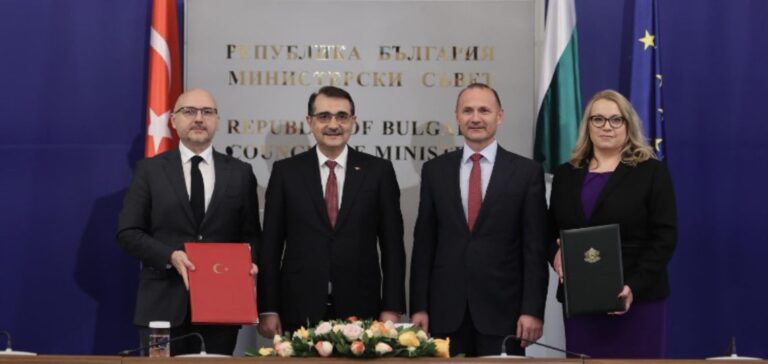Bulgaria will have access to the gas infrastructure of its Turkish neighbor according to an agreement signed Tuesday in Sofia. The 13-year agreement aims to diversify its supply following thecessation of deliveries by Russia after the invasion of Ukraine.
“This will allow us to buy gas from all international producers and unload it in Turkey, where it suits us best logistically,” said Bulgaria’s acting Energy Minister Rossen Hristov.
According to Turkish Energy Minister Fatih Donmez, the contract covers the next 13 years. It could involve up to 1.5 billion cubic meters of liquefied natural gas (LNG) transported per year. That is half of the Bulgarian needs.
The agreement between the Bulgarian state-owned gas operator, Bulgargaz, and the Turkish state-owned gas company, Botas, provides access to both the terminals and the Turkish transit networks. In addition, it will “increase the security of deliveries” in the entire Balkan region, he added.
Before Russia invaded Ukraine in February, Moscow provided almost all of Bulgaria’s needs. Member of the European Union (EU) and NATO, about 3 billion cubic meters of gas per year.
But the supplier suspended deliveries in April. Sofia was one of the customers who refused to pay in rubles as demanded by Russia in retaliation for the European sanctions.
Currently, Bulgaria imports about one billion cubic meters of natural gas from Azerbaijan. In July, it inaugurated a new gas pipeline linking it to Greece and providing it with American LNG.





















